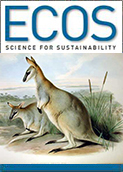
|
Published: 23 June 2014
Asia-Pacific hub to stimulate regional investment in clean energy
The Asian Development Bank and two United Nations agencies have established an Asia-Pacific ‘Sustainable Energy for All’ regional hub in Manila to mobilise investment opportunities for energy efficiency and renewable energy initiatives in the region.

|
|
The International Energy Agency estimates that Asia and the Pacific will need investments of more than US$200 billion to provide region-wide access to clean energy by 2030. Credit:
Thinkstock
|
The hub will bring together governments, investors, innovators and experts to find ways of bringing energy to the more than 600 million people in the region who live without electricity. A further 1.8 billion lack access to clean energy technologies for cooking and heating.
‘Universal access to modern energy means far more than merely providing kilowatt hours. It means providing energy for schools, health clinics, small businesses, and other productive services that improve lives,’ said Caitlin Wiesen, Manager of the Asia-Pacific hub.
Asia’s demand for energy is on the rise as the region’s economies expand, and as populations move to cities where energy use per person is higher than in rural areas.
By 2035, developing countries in Asia will account for 56 per cent of global primary energy use, up from 34 per cent in 2010.
The hub is one of three regional centres around the world initiated by UN Secretary-General Ban Ki-moon as part of the UN Decade of Sustainable Energy for All (SE4ALL), from 2014-24.
The SE4ALL initiative has three targets to be met by 2030: universal access to modern energy services; double the annual global rate of improvement in energy efficiency; and double the share of renewable energy.
The Manila-based hub will leverage the existing structures of Asian Development Bank (ADB), UNDP and United Nations Economic and Social Commission for Asia and the Pacific (UNESCAP) energy programmes that support countries in conducting rapid assessments of energy needs and plans, fostering policy dialogue, and mobilising funds for clean energy development.
‘Developing Asia is home to the majority of the world’s energy poor, more than 600 million without access to electricity and around 1.8 billion people still using fuels like firewood or charcoal to cook their food and heat their homes,’ said Bindu Lohani, ADB’s Vice-President for Knowledge Management and Sustainable Development.
In Asia and the Pacific, UNDP supports 36 developing countries with comprehensive programmes focusing on providing energy access, promoting renewable energy, and fostering energy efficiency as part of broader efforts to reduce poverty.
Over the last two decades, UNDP mobilised more than US$600 million to finance energy projects in the region, from energy-efficient buildings to innovative off-grid solutions for the energy poor.
Source: UNDP



